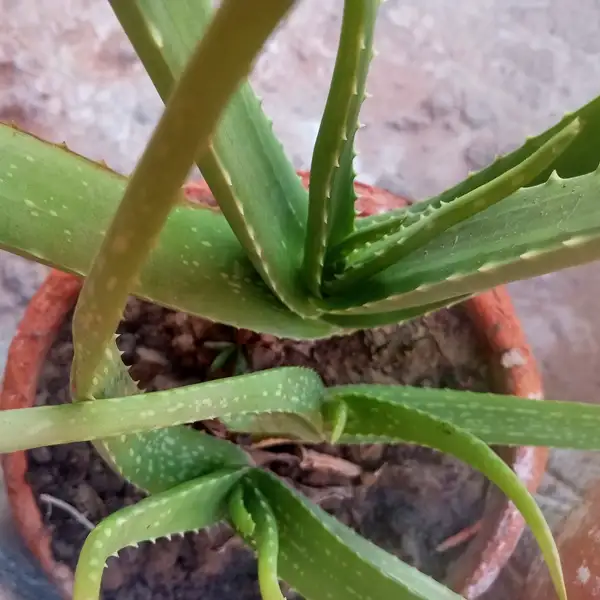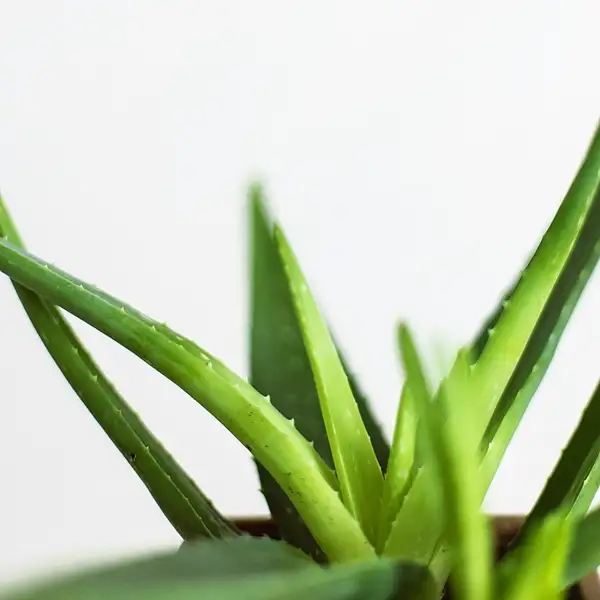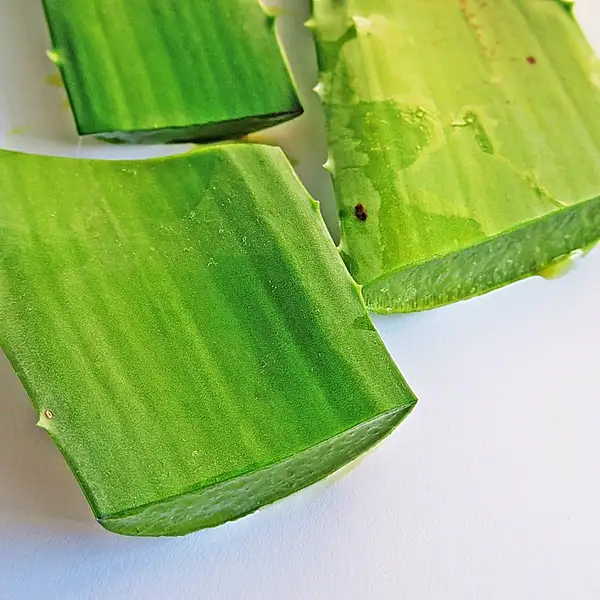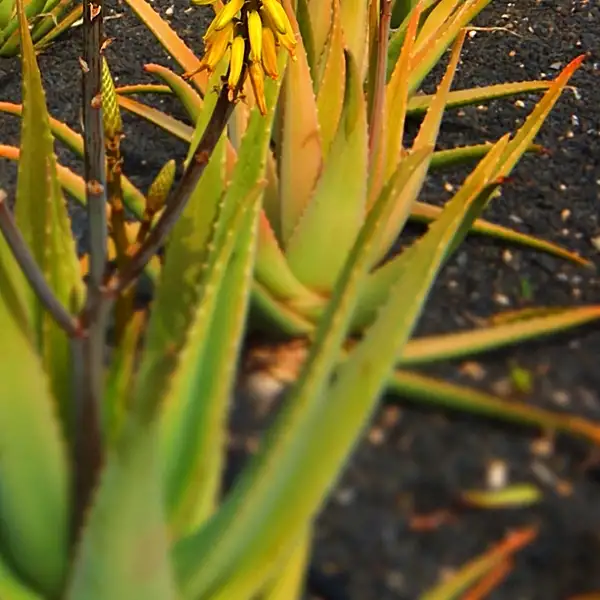Key Takeaways
| Key Takeaways | What You Will Learn |
|---|---|
| Healing Power of Aloe Vera | Discover why this plant has been revered for centuries & how it supports health & well-being |
| Common Misconceptions About Aloe Vera | Unravel truth behind concerns regarding its potential cancer risks |
| Scientific Insights on Aloe Vera | Explore research-backed findings on its impact on human body |
| Potential Risks & Precautions | Can aloe vera cause cancer? Understand when & how aloe vera may cause harm if not used correctly |
| Striking a Balance for Safe Usage | Learn how to maximize benefits while minimizing risks through mindful consumption |
Healing Power of Aloe Vera
Aloe vera, a plant native to Arabian Peninsula has garnered worldwide recognition for its many healing properties. Natural health enthusiasts have glorified its inherent benefits since antiquity.

Let’s have a look at 7 key components of aloe vera & how they contribute to our health:
7 Key Components of Aloe Vera
| Component | Health Benefits |
|---|---|
| Enzymes |
|
| Vitamins (A, C, E & B12) |
|
| Minerals (Calcium, Magnesium & Zinc) |
|
| Acemannan |
|
| Phytonutrients |
|
| Aloe Latex |
|
| Alkalizing Properties |
|
Digging into the Myth: Can Aloe Vera Cause Cancer?

When plants with extraordinary remedial capabilities such as aloe vera, are brought into conversations about potential cancer-causing agents, eyebrows are bound to be raised.
The question of whether this benign-looking green wonder can instigate cancer is shrouded in controversy, mainly due to different types & forms in which it is consumed.
It is important to clarify that international bodies like International Agency for Research on Cancer (IARC) have flagged non-decolorized whole-leaf extract of aloe vera as a potential carcinogenic concern (Group -2B).
However, not every type or form of the plant carries same level of risk for consumers.
4 Risks of Excessive Aloe Vera Consumption ( +What to Do)

Indisputably beneficial when used topically, excessive oral consumption can lead to certain health risks, according to the Food and Drug Administration (FDA).
| Side Effect / Issue | Description | Recommended Action |
|---|---|---|
| Stomach Cramps & Diarrhea |
|
|
| Lowered Blood Glucose Levels |
|
|
| Potassium Depletion |
|
|
| Severe Symptoms (Dizziness, Dehydration) |
|
|
Note: Always Remember! Uncontrolled ingestion is strongly discouraged.
2 Research Findings on Aloe Vera and Cancer
Research focusing on impact caused by aloe vera on cancer cells indicates far from conclusive results.
| Source | Key Findings |
|---|---|
| Frontiers in Pharmacology |
|
| Cancer Biology & Therapy |
|
2 Studies Linking Oral Non-Decolorized Aloe Vera to Cancer Risk
Investigations have revealed that oral use of non-decolorized whole-leaf extract of Aloe vera led to development of gastrointestinal malignancies in lab mice & rats. However, clinical evidence in humans remains scarce & elusive at this point.
| Study | Findings |
|---|---|
| National Institute of Environmental Health Sciences’ National Toxicology Program (NTP) |
|
| FDA and NTP |
|
Clarifying Research on Aloe Vera and Cancer

While aloe vera contains beneficial compounds, concerns exist regarding its potential cancer risks. Research findings vary, and it is important to differentiate between different forms of aloe vera.
| Form of Aloe Vera | Associated Risk | Scientific Evidence |
|---|---|---|
| Decolorized Aloe Vera | Considered safe |
|
| Non-Decolorized Whole-Leaf Aloe Vera | Potentially carcinogenic |
|
| Aloe-Emodin | Mixed findings |
|
2 Golden Tips
Current research suggests that moderation & choosing right form of aloe vera are key to safe consumption. More human studies are needed to fully understand its long-term effects.
The Way Forward: Balanced Perspective Using Aloe Vera
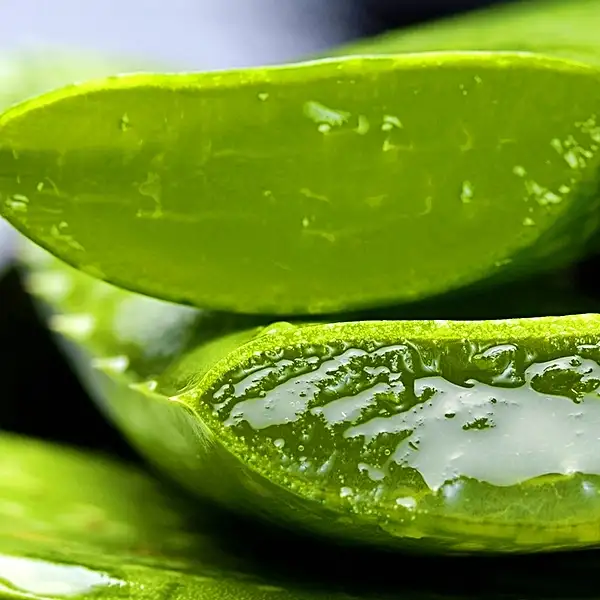
Keeping the above information in mind provides a clear realization that while Aloe vera has integral healing potential for a variety of health ailments, it is a potent herbal remedy that should be handled with appropriate precautions.
We must acknowledge that excessive use of anything can lead to undesired consequences. Moderation is key when utilizing benefits of this marvelous plant extract.
Furthermore, ongoing research is pivotal in understanding safety of Aloin, Emodin & non-decolorized Aloe vera extracts along with their implications for human health. Although confirmed links exist in mouse models, isolating the effects of a particular derivative does not mean entire plant should be considered harmful.
Aloe vera, in its many forms & uses, continues to benefit a sizeable human population worldwide.
4 Safe Usage Guidelines for Aloe Vera
| Guideline | Details |
|---|---|
| Choose Decolorized Aloe Vera |
|
| Limit Oral Intake |
|
| Avoid Aloe Latex |
|
| Consult a Doctor |
|
Conclusion
To sum up, while aloe vera does come with a plethora of health benefits & potential anti-cancer properties, its oral over-consumption or use in certain un-decolorized forms could pose concerns.
Thus the need persists for more research to fully understand potential risk factors involved & until then moderate usage might be safest bet for people looking forward to harnessing healing capabilities of this miracle plant.
Frequently Asked Questions
Who should not use aloe vera?
People with sensitive digestion, diabetics, heart patients, pregnant women & children should avoid excessive aloe vera intake. Its laxative effects cause cramps & diarrhea while long-term use depletes potassium, worsening heart conditions.
Is it safe to drink aloe vera juice every day?
Daily intake in moderation may support digestion but excessive consumption triggers stomach issues & mineral imbalances. The FDA warns against prolonged oral use especially non-decolorized extracts linked to health risks.
Is aloe vera juice kidney friendly?
Excessive consumption may strain kidney function by causing dehydration & toxin buildup. People with kidney conditions should consult a doctor before drinking aloe vera juice.




